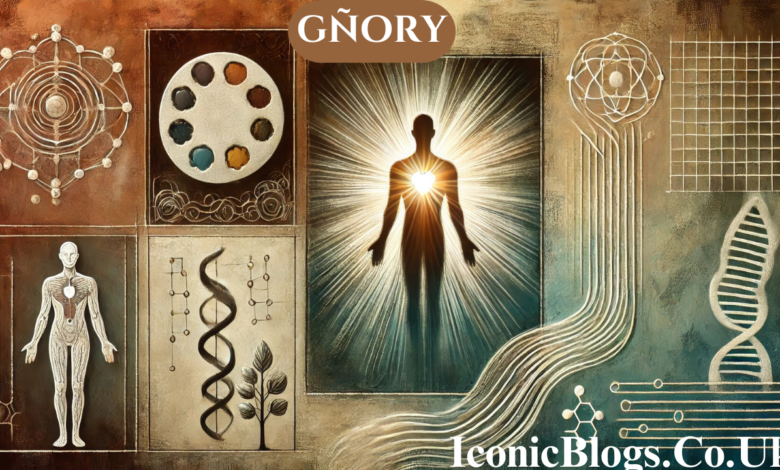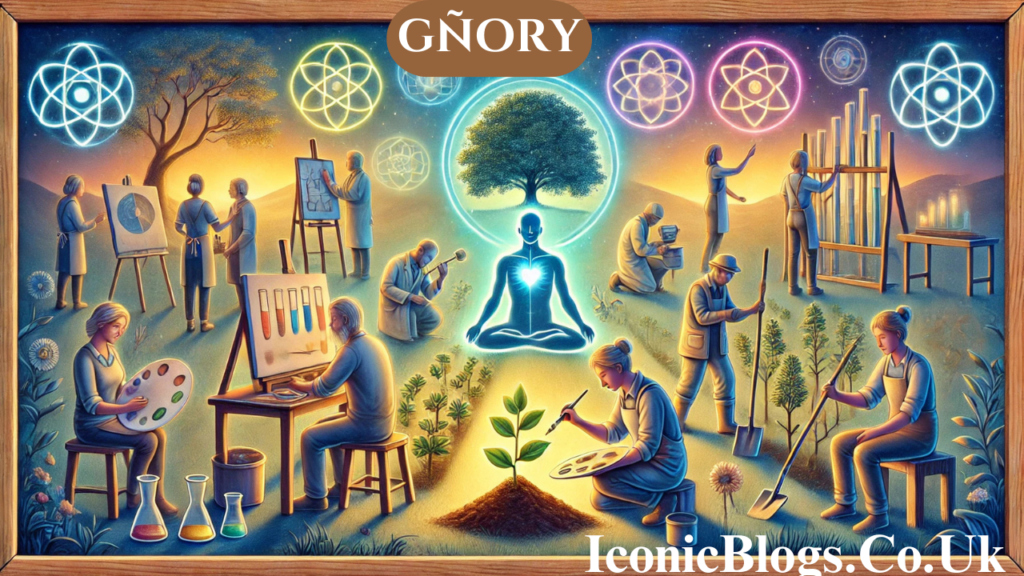Decoding gñory: Significance and Implications

The term “gñory,” although not a common English word, conjures a feeling of significant importance, hinting at themes like distinction, recognition, and possibly even a distinctive type of inner brightness or striking presence. To dive into its possible meaning and consequences involves a sophisticated examination, evaluating how such a phrase may be construed across multiple settings and the associated concepts it might entail. This article seeks to deconstruct the potential features of “gñory,” investigating its probable ties to existing notions and exploring its potential importance in many domains of human activity and knowledge.
The Etymological Whispers of gñory
Given its non-standard form, the derivation of “gñory” is not immediately traceable. However, we might hypothesize on its likely origins or the language echoes it could hold. The occurrence of the “ñ” implies a probable relationship to languages like Spanish, where it denotes a separate nasal palatal sound. Words featuring this letter frequently convey notions of complexity or distinct cultural settings. If we analyze “gñory” via this lens, it could indicate a notion that is culturally peculiar or features a nuanced differentiation not readily conveyed by mainstream English terminology.

Alternatively, the genesis of “gñory” might be a purposeful fabrication, presumably designed to embody a unique combination of existing notions. The “glory” element is readily visible, implying a relationship to renown, honor, and adoration. The inclusion of “ñ” might be an effort to alter or emphasize this connotation, possibly referring toward a more inherent or specifically described type of glory. It could signify a glory that is not only outward acknowledgment but something genuinely personal or fundamentally powerful.
Furthermore, one may investigate the phonetic features of “gñory.” The gentle “ñ” sound paired with the more resonant “glory” might represent an idea that combines inner quality with external expression.
gñory as a Form of Intrinsic Excellence
If we consider “gñory” as a state of innate perfection, it rises beyond simple external confirmation. This approach implies that “gñory” could exist in the fundamental traits of a human, an item, or a concept. It might be the personification of mastery, the serene assurance that arises from profound expertise and steadfast integrity.
In this sense, a person with “gñory” may not necessarily seek public recognition, but their acts and inventions would naturally emanate a feeling of deep quality and significance. Their art would speak for itself, conveying an intrinsic weight and power. This sort of “gñory” is durable, anchored on true skill rather than transitory popularity. It is the mark of great workmanship, the sign of devotion to perfection for its own sake.
Consider the artist who toils diligently, developing their trade not for fame but for the innate delight of creation. Their art, endowed with talent and emotion, could exhibit a type of “gñory” that surpasses critical recognition. Similarly, a scientist motivated by an unquenchable curiosity, generating revolutionary discoveries without pursuing personal aggrandizement, reflects this inner “gñory.” Their contributions to knowledge hold an intrinsic significance that speaks loudly.
gñory as Impactful Presence and Influence
Another facet of “gñory” might relate to the effect and influence an entity exerts on its surroundings. This goes beyond ordinary exposure or reputation. “gñory” in this context denotes a powerful and frequently transforming influence. It is the power to influence events, inspire others, and leave a lasting impact.
A leader that has “gñory” may not be the loudest or most charismatic, but their vision and deeds would have a big and good influence on their company or community. Their impact originates from their knowledge, honesty, and the real caring they display for people they lead. Their presence compels respect not via force but by the concrete outcomes of their work.

Similarly, creative thought that profoundly affects a subject of study or technical innovation that revolutionizes everyday life might be considered to contain “gñory.” Their effect is evident, and their influence is far-reaching.
Gñory is Subjective and Contextual
The most important point to appreciate about gñory–in particular, that sister word glory–is that it is highly subjective and tends to be situational and context-dependent.
People of history are often seen as gñorious by the values, priorities, and interpretations of their time and the time after, which amounts to what we may consider the various perspectives. In other words, a warrior might be glorified for the conquests one made in one time and reviled in another for deeds that would be termed aggression. So gñory shifts slowly together with the social landscape around it.
Like all matters of art and creativity, the gñory of work is subject to change across time. The social reception context and aesthetics of the moment, as well as contemporary and developing cultural understandings, weave in and out of gñory.
So it is important, when considering “gñory,” to remain vigilant to the specific context in which the word is used and what values are being brought to bear. For instance, characteristics such as scientific insight, artistic innovation, or humanitarian endeavor may be seen as exhibiting worthy gñory but, nevertheless, may have very little in common with other areas of work, performance, or personal involvement where gñory is sought.
How to Cultivate and Recognize gñory
If it is intrinsic excellence with a far-reaching impact in the present moment, then how do we cultivate and recognize it? It requires incessant learning, self-improvement without fail, and a zealous insistence on quality. The perspective is of refining the act and developing a personal sense of integrity.
Impactful presence, however, would be more concerned with the genuine desire to make positive contributions to the world. This empathy and vision would concern the ability to inspire and motivate other people with a shared purpose. It indicates the action of pouring out one’s skills in the service of bringing forth positive change for the world and for the enhancement of their own life.
To recognize gñoriness in others does require discernment, and requires one to see past all superficial layers. It is to appreciate the depth of skill, integrity of character, and positive action of an individual. It is to laud what matters over flashy recognition and honor the quiet strength of genuine excellence.
gñory in the modern world
The idea of “gñory” provides an important alternative to the unrelenting quest for transient fame and outside approval in today’s fast-paced and sometimes shallow society. It serves as a reminder of the significance of inherent worth, real influence, and the lasting strength of brilliance.
The long-term value they generate and the beneficial effects companies have on society are more important indicators of their success than profit margins alone.

Aiming for “gñory” in personal growth might include concentrating on building one’s inner strength, acquiring useful talents, and making a constructive contribution to one’s community.
In conclusion, accepting gñory’s essence
Even if “gñory” is not a common phrase, the ideas it conjures up—inherent quality, a powerful presence, and a deep feeling of significance—are very pertinent to how we think about success, impact, and enduring worth. By investigating its possible facets, we are better able to recognize the most important attributes, those that go beyond fads and make life more significant and meaningful. Adopting the spirit of “gñory” pushes us to see beyond appearances and appreciate the profundity, honesty, and enduring influence that characterize genuine distinctiveness. It is an exhortation to value and appreciate greatness in the world around us as well as to create it within ourselves. The search for “gñory,” in its purest form, is a search for lasting meaning.
